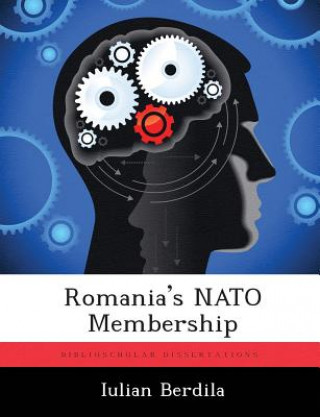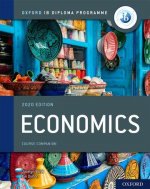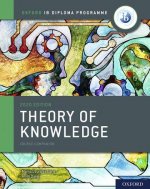
Kód: 08243289
Romania's NATO Membership
Autor Iulian Berdila
Romania represents a reliable NATO member and an emergent democracy among the Eastern European countries. In 2004, Romania became a NATO member and will be integrated in the European Union in 2007. However, these achievements requ ... celý popis
- Jazyk:
 Angličtina
Angličtina - Vazba: Brožovaná
- Počet stran: 52
Nakladatelství: Biblioscholar, 2012
- Více informací o knize

Mohlo by se vám také líbit
-

Initial Training of Surface Warfare Officers
1646 Kč -

Smart and Simple Financial Strategies for Busy People
438 Kč -

I've Got Your Back
910 Kč -

Adventures in Infertility
568 Kč -

Free to Live, Free to Love
621 Kč -

Almost There
478 Kč -

Beatles Generation
521 Kč -

Moments That Matter
633 Kč -

Feeling Numb
345 Kč -

Take Your Time, Go Slowly
548 Kč -

Make Your Point!
677 Kč -

Chicago, Milwaukee, St. Paul & Pacific Railroad Company V. Goldhammer U.S. Supreme Court Transcript of Record with Supporting Pleadings
791 Kč -

Histoire Des Canadiens-Franc Ais. 1608-1880. Ouvrage Orne de Portraits Et de Plans.
1003 Kč -

Five Court Rolls of Great Cressingham in the County of Norfolk. Translated, with an Introduction and Notes, by H. W. Chandler.
584 Kč
Darujte tuto knihu ještě dnes
- Objednejte knihu a zvolte Zaslat jako dárek.
- Obratem obdržíte darovací poukaz na knihu, který můžete ihned předat obdarovanému.
- Knihu zašleme na adresu obdarovaného, o nic se nestaráte.
Více informací o knize Romania's NATO Membership
Nákupem získáte 165 bodů
 Anotace knihy
Anotace knihy
Romania represents a reliable NATO member and an emergent democracy among the Eastern European countries. In 2004, Romania became a NATO member and will be integrated in the European Union in 2007. However, these achievements required Romania to go through challenging reforms and to implement Western standards. NATO membership represented the first challenge after the fall of communism in the early 1990's. The process for NATO developed along three main dimensions: NATO's evolution after the Cold War, Romania's historical position toward Western integration and Romania's military reform after the Warsaw Pact dissolved. After 1990, NATO's own evolution represented the main process that influenced decisively Romania's development. NATO had to confront two policy issues: the relevance of the Alliance after the fall of the Soviet Union and the rationale for including former Eastern European countries. NATO's approach was to encourage former Warsaw Pact countries to cooperate within NATO's security forum to maintain stability in Eastern Europe. Moreover, the Eastern European countries could develop policies and plans for NATO membership. At the same time, the possible NATO enlargement could redefine NATO's role and preserve its relevancy. Romania's communist domination for almost five decades after World War II limited its opportunities for becoming a democratic country. Nicolae Ceausescu's dictatorship produced negative political, social and economic effects and influenced the West's perception of Romania. However, Romania started to review its servitude to the Soviet regime in the mid 1960's. The West responded positively but remained skeptical after Ceausescu's failure to improve social and economic conditions. After the 1989 Revolution, Romania struggled to create the conditions for NATO and EU membership. Political consensus and proper resource allocation remained the constant issues for the post-1989 Romanian governments. Besides addressing social issues to demons
 Parametry knihy
Parametry knihy
Zařazení knihy Knihy v angličtině Society & social sciences Education
1646 Kč
- Plný název: Romania's NATO Membership
- Autor: Iulian Berdila
- Jazyk:
 Angličtina
Angličtina - Vazba: Brožovaná
- Počet stran: 52
- EAN: 9781288316953
- ISBN: 9781288316953
- ID: 08243289
- Nakladatelství: Biblioscholar
- Hmotnost: 109 g
- Rozměry: 246 × 189 × 3 mm
- Datum vydání: 19. November 2012
Oblíbené z jiného soudku
-

Oxford IB Diploma Programme: IB Economics Course Book
1607 Kč -

Business Partner B1+ Workbook
462 Kč -

Speed and Accuracy: Multiplication
228 Kč -

Powerful Teaching: Unleash the Science of Learning
665 Kč -

Speed and Accuracy: Division
208 Kč -

Read Write Inc. Phonics: Red Ditty Book Bag Books (Mixed Pack of 10)
1955 Kč -

Dancing Heads
368 Kč -

Freiarbeitsmaterial für die Grundschule - Deutsch - Klasse 1/2
604 Kč -

Cambridge IGCSE (R) & O Level Complete Physics: Student Book Fourth Edition
929 Kč -

Business Partner B1 Workbook
434 Kč -

Business Partner B2 Workbook
462 Kč -

Blue Book of Grammar and Punctuation: An Easy- to-Use Guide with Clear Rules, Real-World Examples , and Reproducible Quizzes, Twelfth Edition
393 Kč -

OET Preparation
246 Kč -

KS3 Maths 10-Minute Weekly Workouts - Year 7
199 Kč -

OET Reading Subtest Preparation
343 Kč -

Grade 9-1 GCSE Maths AQA Revision Question Cards - Higher
242 Kč -

Oxford IB Diploma Programme: IB Theory of Knowledge Course Book
1479 Kč -

Positive Discipline Tools for Teachers
429 Kč -

Embodied Teen
545 Kč -

1000 TRIOS or gapped sentences for Cambridge Advanced and Proficiency Exams
608 Kč -

Pearson Edexcel AS and A level Mathematics Statistics & Mechanics Year 1/AS Textbook + e-book
469 Kč -

(ISC) SSCP SG & SSCP Practice Test Kit, 3e
1745 Kč -

Motivation and Reinforcement
1161 Kč -

Pearson Edexcel International GCSE (9-1) English Language B Student Book
1328 Kč -

GCSE Spanish Exam Practice Workbook (includes Answers & Free Online Audio)
220 Kč -

Imagine If...
306 Kč -

Vertical Academy
919 Kč -

Oxford International Primary Maths Second Edition: Practice Book 1
323 Kč -

Vol 2 Blackletter Lettering Adventures
635 Kč -

AS & A Level Maths For Dummies
457 Kč -

Forensic Linguistics Articles
417 Kč -

CompTIA Security+ Review Guide - Exam SY0-601
621 Kč -

Abolition of Man
468 Kč -

Human Landscapes from My Country
656 Kč -

Corrected Squares of The Book of Abramelin
14513 Kč -

Hanbo Jutsu: Use of Hanbo, Cane and Walking Stick for Self Defense
284 Kč -

Reading Mind - A Cognitive Approach to Understanding How the Mind Reads
556 Kč -

KS3 Maths 10-Minute Weekly Workouts - Year 8
199 Kč -

Exam Prep for Microeconomics by Pindyck & Rubinfeld, 6th Ed.
1089 Kč -

North Korea's Military Threat
698 Kč -

English Language & Literature WORKBOOK: York Notes for GCSE (9-1)
237 Kč -

Release Your Inner Drive
403 Kč -

Effect of Registration Errors on Tracking in a Networked Radar System
1646 Kč -

Cambridge IGCSE (R) & O Level Complete Chemistry: Student Book Fourth Edition
992 Kč -

Princeton Review SAT Premium Prep, 2021
1134 Kč -

CEH v11 Certified Ethical Hacker Study Guide + Practice Tests Set
1872 Kč -

10 Practice Tests for the SAT, 2021 Edition
839 Kč -

OCP Oracle Certified Professional Java SE 11 Programmer II Study Guide - Exam 1Z0-816 and Exam 1Z0-817
1323 Kč -

Prepared
876 Kč
Osobní odběr Praha, Brno a 12903 dalších
Copyright ©2008-24 nejlevnejsi-knihy.cz Všechna práva vyhrazenaSoukromíCookies



 Vrácení do měsíce
Vrácení do měsíce 571 999 099 (8-15.30h)
571 999 099 (8-15.30h)